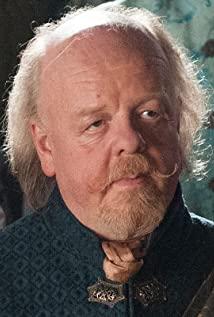Mike Leigh made a too risky choice: he wanted to make a biography of Turner, a great man in the painting world, but he completely detached from the essence of biography, not how a man became a great man, but only when a great man was like a man. The warm light of silence, the long observation, the shuttle also penetrates the life of Turner, erasing the anecdotes and filling the details of life... Everything seems dull, but it is full of romance. Mike Lee, is worthy of everyone's demeanor!
The reality is that people make their names, but biography is that their names make people. It seems contradictory, but it is not. The reason why the biography is passed down is that a certain great achievement at a certain moment is too bright, so bright that the public must make a biography and read it, so as to find the long-term antecedent of the event. And then thank the subject of the cause of achievement: the so-and-so who has been biography. Therefore, biography brews passion, fame must win things, and things must win people.
The Painted Century: Mr. Turner is not. It seems that what McLee disdains the most is passion. He only takes pictures of Turner's brushstrokes, but does not take pictures of how the classic works he finished make ripples in the painting world. He only talked about Turner's surprise when he saw the train for the first time, but he didn't let the twentieth-century Shi Zan tactfully "pass through" the foresight of Turner's perception of the arrival of industrialization. , our audience was also pushed by his script to a viewing position that was too far and too unfamiliar, so far that Turner was not like a master, just a weirdo who ate, drank, traveled, socialized and socialized, so that we couldn't even find the entry point to enjoy the memory.
That distance is what McLee wants. When "Master Turner" is beaten back to "Mr. Turner", or even just "Tuner", we can really stand with him in the era where he lived, without the intervention of all the praise and criticism of future generations. In an instant, Turner's dullness, stuttering, pride, bad habits and arrogance all became closer because they were farther away. Of course, Mike Li Jingshen's realistic style plays an amazing role in this.
The finishing touch is the two supporting roles, who are also the faces who have accompanied Turner for the longest time: the maid and the mistress, who are Turner's lover and the other who first built the coffin for Turner as a great man, but their circumstances are quite different. The maid knew everything about Turner's father and son, but Turner revealed all kinds of signs that he didn't think he was a confidant. The mistress's understanding of Turner was only in the attic time, but Turner often used friendship as a gift of company. Just as Turner died, two women returned to their own lives, one without a half of Turner's paintings, but smiling and cleaning the window while facing the sun, the other sitting in Turner's studio, but with tears streaming down the corridor, a light and a shadow, With a smile and a tear, Turner was gone, but it was disappointing to see the ending that Turner brought behind him.
And, is there really a lack of passion? Probably not. The scenes of the whole film are exquisite, the costumes are meticulous, and the sense of history is vivid. Photography and coloring are derived from the coloring of Turner's paintings, and the warm light spreads all over the world. The sense of history and light and shadow complement each other, blurring the outlines of screen paintings and oil paintings, and constantly eliciting new surprises. In this scene, we see the twilight windmill swaying, the lens is left to the left, and Turner is standing on the edge of the grassland, imitating the same scenery as the audience. It turns out that we are experiencing the moment when the famous work was born. In another scene, Turner impromptuly swayed the brewing paint on the walls of the salon. When the camera turned, the white dots of dirt on the canvas turned into clouds in the mountains in the distance. It turned out that we unconsciously went on a pilgrimage to the Holy Land... …
.The painter wrote, and it became a matter of thunder, "the sun is God". Horrible, beautiful!
The only biographical film that can compete with this film this year is "Dark Champion Road" (Foxcatcher). It chose the same purpose as Mr. Turner, but in making a biopic, it tried to get away from the nature of the cause and effect, which must be discussed in the biography, but the shooting method was just different. "Painting Century: Mr. Turner" chose to move away, making the audience look like a painter In the description, "Dark Champion Road" chose to draw closer, and the audience was directly pulled into the ring, and had a Greek-style wrestling with the three protagonists. The almost naked muscles struggled, forcing the audience to be unable to think about the reason, and could only follow the characters instantly. Bai's emotions erupted and went into and ups and downs, but there was also an intermission between the hot fights, so that the audience would not be swallowed up. The hot and cold mixed, very exciting. Steve Carell (Steve Carell) and Channing Tatum (Channing Tatum) also contributed their superb acting skills, both evil and naive, and Timothy Spall played Turner's corpse in his later years. The breath of life is higher than...
Due to the space, I won't talk about it, I have the opportunity to share some of the experiences this film gave me.
View more about Mr. Turner reviews











